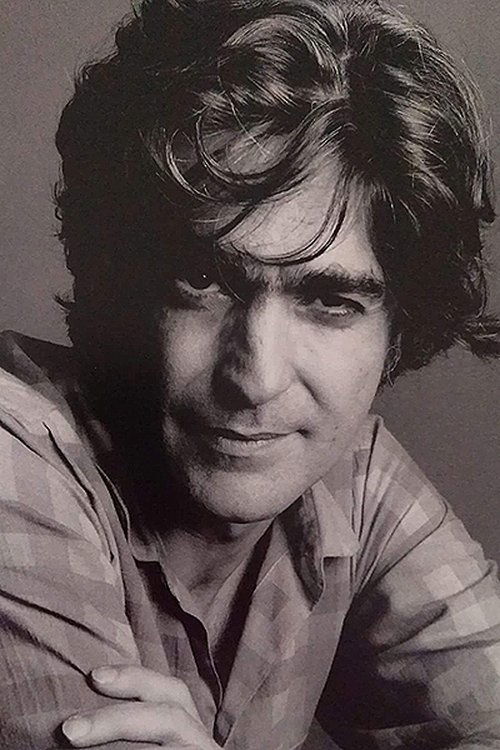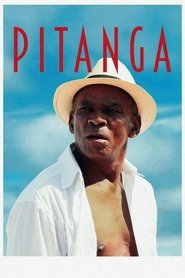detail profile luiz carlos maciel

Riwayat Hidup
Luiz Carlos Maciel (Porto Alegre, March 15, 1938 - Rio de Janeiro, December 9, 2017) was a Brazilian philosopher, writer, journalist and screenwriter.
Info Pribadi
Peran Yang Di Mainkan Luiz Carlos Maciel
 Participants recall a series of festivals...
Participants recall a series of festivals...O Barato de Iacanga 2019
Participants recall a series of festivals held on a farm in Brazil during the '70s and '80s that evolved into liberating celebrations of music.
 The extraordinary story of Luiz Martins...
The extraordinary story of Luiz Martins...Dear Ambassador 2018
The extraordinary story of Luiz Martins de Souza Dantas, who served as Brazilian Ambassador to Paris during WWII. A largely unsung hero, he defied his own government’s orders by granting hundreds of unauthorised visas to Jews and others facing imminent capture and death.
 This documentary investigates the aesthetic political...
This documentary investigates the aesthetic political...Pitanga 2016
This documentary investigates the aesthetic, political and existential trajectory of emblematic Black Brazilian actor Antônio Pitanga. His career spans over five decades, and he has worked with iconic Brazilian filmmakers Glauber Rocha, Cacá Diegues and Walter Lima Jr. He was a prominent figurehead and outspoken activist during the Brazilian dictatorship, a period of unrest in Brazilian cinema. "Pitanga" deep dives into the world of Antônio and the history of Brazil. The documentary was directed by his daughter Camila Pitanga, one of widely recognised faces in Brazilian television and cinema right now. The film is also a poem, and a tender ode to fatherhood.
 A look into the life and...
A look into the life and...Domingos 2009
A look into the life and mind of Brazilian playwright and filmmaker Domingos Oliveira through his daily activities and artistic deeds.
 Documentary about Brazilian filmmaker Glauber Rocha...
Documentary about Brazilian filmmaker Glauber Rocha...Glauber Rocha - The Movie, Brazil's Labyrinth 2003
Documentary about Brazilian filmmaker Glauber Rocha, one of the most important names in the Cinema Novo, with interviews with some of his friends and colleagues.
 After the great success of the...
After the great success of the...Elis Regina Carvalho Costa 1980
After the great success of the Rio season of her show Saudades do Brasil, Elis Regina made this special with Globo. In a circus-inspired stage, she sings Alô, Alô, Marciano by Rita Lee and Roberto de Carvalho; O Bêbado e a Equilibrista by João Bosco and Aldir Blanc; and O Que Foi Feito (de Vera) by Milton Nascimento and Fernando Brant, amongst others.
 Mulher 80 emerged as a result of...
Mulher 80 emerged as a result of...Mulher 80 1979
Mulher 80 emerged as a result of the success of 'Malu Mulher' (1979), a miniseries starring Regina Duarte, which addressed the female situation in Brazilian society at that time. The main focus of the special was the female presence in music, honouring the singers and songwriters of MPB with musical numbers and testimonials.
 Chronicles the life of a 17 yearold...
Chronicles the life of a 17 yearold...The Girl from Ipanema 1967
Chronicles the life of a 17 year-old girl living in the upper-class Rio de Janeiro neighbourhood of Ipanema. Márcia lives a life of parties and spend her days among bohemians, musicians and intellectuals. While seeming happy in the outside, she's extremely anguished inside. Based on the famous song by Antonio Carlos Jobim and Vinicius de Moraes.
 In search of a better life...
In search of a better life...The Big City 1966
In search of a better life, Luzia leaves the Northeast of Brazil and goes to Rio de Janeiro, looking for her fiance who went first to pave their way. Alone in the Marvelous City, she is forced to accept the friendship and protection of Calunga and, later, the company of Inácio.

 In a fictitious country a civil...
In a fictitious country a civil...
